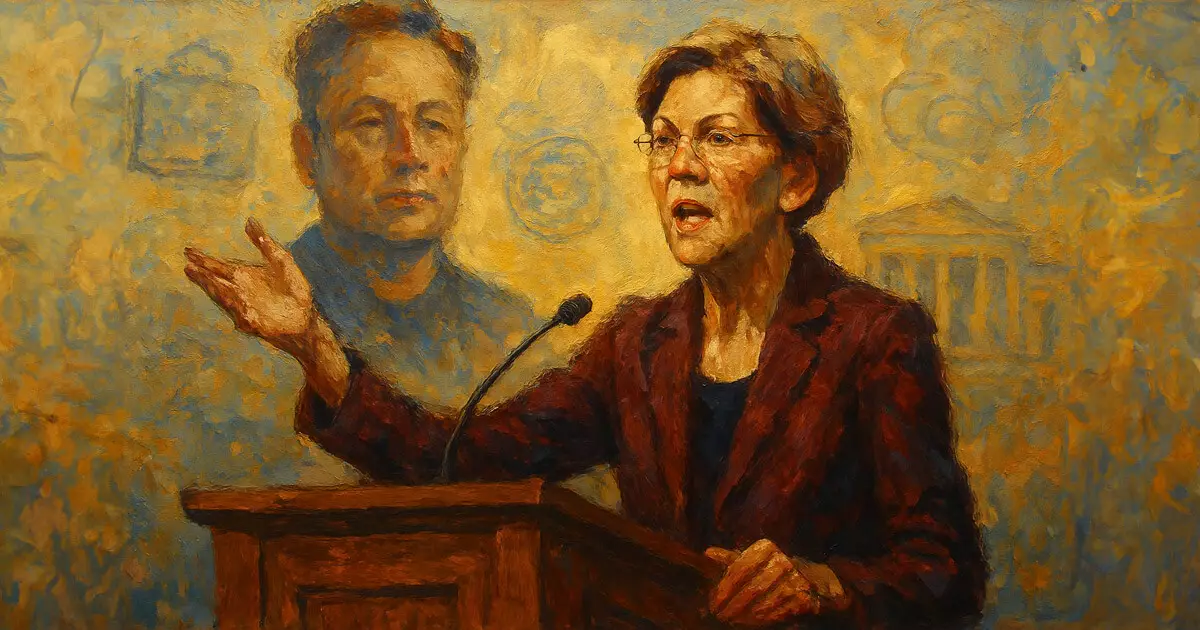The recent introduction of the Special Government Employee Ethics Enforcement and Reform (SEER) Act by a coalition of lawmakers, spearheaded by Senator Elizabeth Warren, shines a critical light on the murky waters of government ethics. This bill not only aims to hold Special Government Employees (SGEs) accountable but also tackles the pervasive issue of conflicts of interest stemming from an unethical blend of public service and private enterprise. While some may argue that such regulations could stifle innovation, I contend that tightening ethics standards is essential for the integrity of our democratic institutions.
Understanding the SGE Framework
Current regulations permit SGEs to juggle federal advisory roles while maintaining lucrative ties to private enterprises. This has resulted in a loophole that allows individuals like Elon Musk and White House crypto advisor David Sacks to secure significant government contracts without full financial transparency. The SEER Act seeks to change that, requiring disclosures once these officials cross the 61-day threshold of service and imposing restrictions on external compensation thereafter. This framework addresses a glaring inconsistency: if part-time advisors benefit financially from government dealings, why should they be exempt from the same ethical scrutiny expected of full-time officials?
Warren’s Ethical Standpoint
Senator Warren’s argument that individuals benefiting from substantial government contracts ought to face enhanced scrutiny is a clarion call for fairness. It essentially states that public service should not pay lip service to ethical standards while allowing personal gain to run amok. Critics may assert that such regulations could inhibit talented individuals from entering public service; however, I disagree. A higher ethical bar is not a barrier to entry; it’s a necessary step toward a more accountable government.
The Broad Coalition Behind SEER
The SEER Act garners support from multiple advocacy and watchdog organizations, indicating widespread recognition of the need for reform. Groups like Public Citizen and Citizens for Responsibility and Ethics in Washington (CREW) echo a sentiment that spans across ideological divides: ethical governance is paramount. When various stakeholders rally for accountability, it reflects a shared understanding that ethical governance is non-negotiable, resonating with citizens who remain weary of corrupt practices in governmental affairs.
Specifics of the Legislation
The legislation introduces stringent rules that prevent SGEs from interacting with agencies that govern their private company interests, thereby carving out stricter conflict-of-interest guidelines. This is particularly critical for those who might wield monopolistic power. Moreover, making conflict-of-interest waivers publicly accessible ensures a level of oversight that has been largely absent. Unlike previous governance structures, which often operated behind a veil of secrecy, the SEER Act aims for transparency, aligning with the growing expectation that the government should be accountable to its citizens.
Impact on Corporate Influence in Politics
By limiting the reach of corporate leaders in federal policymaking, the SEER Act directly questions the corrosive influence of money on public policy. Regulatory bodies will no longer operate under the assumption that conflicts of interest are inevitable; they will be required to act. This proactive approach could serve as a model for addressing broader ethical issues within our political landscape, challenging corporate interests that have long dominated Washington.
In a complex and rapidly evolving political environment, the SEER Act acts as a crucial turning point—a robust response that champions integrity and accountability. It is not merely a regulatory change but a necessary cultural shift within government that acknowledges the importance of ethical conduct as a bedrock of democracy.


















